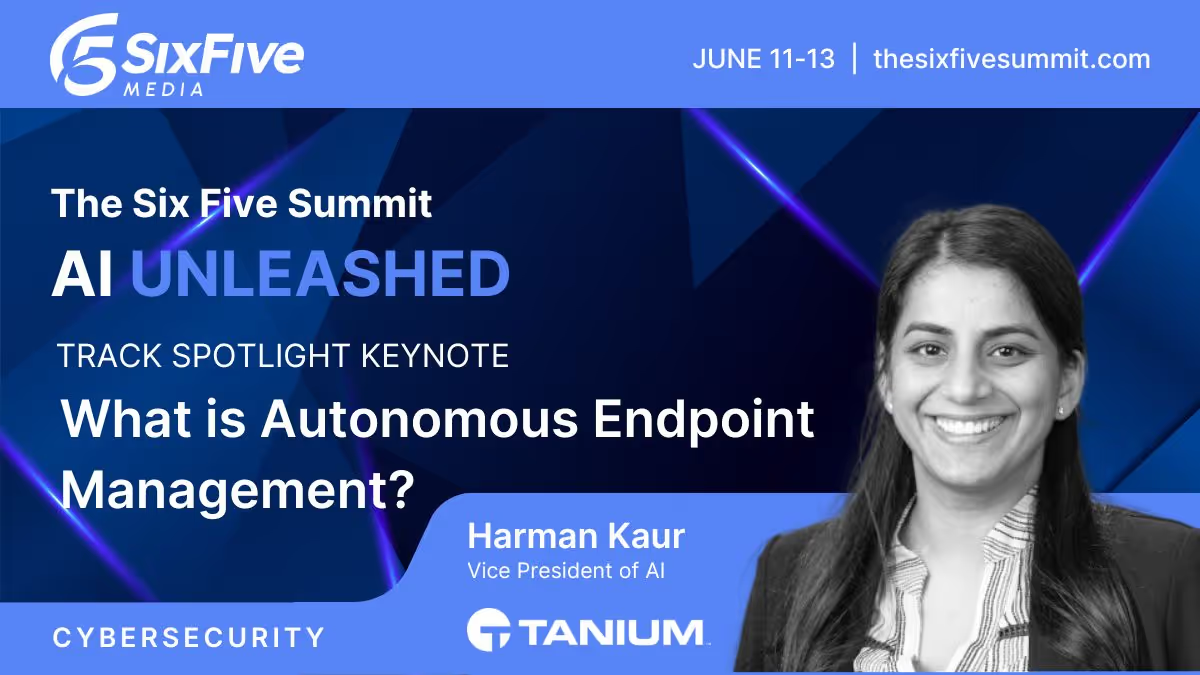AI PCs: The Ultimate Enterprise Edge Device - Six Five On The Road at Dell Tech World 2025
Sam Burd, President at Dell Technologies, shares his remarkable insights on the evolution of AI PCs as enterprise edge devices, highlighting pivotal innovations and customer feedback at Dell Tech World 2025.
The enterprise edge is getting a massive AI upgrade, and the PC is leading the charge! 🚀
Patrick Moorhead and Daniel Newman are joined by Sam Burd, President, Client Solutions Group at Dell Technologies, as he shares invaluable insights from Dell Tech World 2025. AI PCs are revolutionizing the enterprise edge, making way for unprecedented advancements and efficiencies. This isn't just about faster computers; it's about transforming how work gets done, right on the device.
Highlights include:
🔹The PC as the Ultimate AI Edge Device: The discussion highlighted the pivotal role of the PC in the shift of AI to the edge, emphasizing the projected exponential growth in compute power and AI PC capabilities by 2030.
🔹Dell's AI PC Innovations: Sam Burd detailed Dell's current initiatives in making AI PCs a reality, including advancements with CoPilot+, cutting-edge hardware like the Dell Pro Max with Qualcomm AI 100, and robust support for developers.
🔹Customer-Driven AI Adoption: The conversation explored compelling customer feedback and case studies, underscoring the strategic importance of integrating AI PCs into business infrastructure for future-proofing and driving tangible benefits.
🔹Dell Pro AI Studio & On-Device AI: The future vision for on-device AI was unveiled, with Dell Pro AI Studio simplifying and accelerating enterprise AI deployment directly on the PC, enhancing productivity and user experience.
Learn more at Dell Technologies.
Watch the full video at Six Five Media, and be sure to subscribe to our YouTube channel, so you never miss an episode.
Or listen to the audio here:
Disclaimer: Six Five On The Road at Dell Tech World 2025 is for information and entertainment purposes only. Over the course of this webcast, we may talk about companies that are publicly traded, and we may even reference that fact and their equity share price, but please do not take anything that we say as a recommendation about what you should do with your investment dollars. We are not investment advisors, and we ask that you do not treat us as such.
Patrick Moorhead: Foreign. The Six Five is On The Road here in Las Vegas, Nevada. We're at Dell Tech World 2025 and unsurprised to everybody, we are talking about AI morning, noon and night and whether that's data center, data center edge, client computer. We're talking hardware, software, wrapping up a nice bow with services.
Daniel Newman: Yeah, it's been a big week. I mean we're only on day two. Pat. It's been action packed from start to finish every day. The keynote, you know, day one day to a lot of building on what's going on here. Last year was kind of all about deploying what was new. It was new data centers, new AI factories, and new PCs. This was sort of the AI PC moment. This year it's been a lot more about that bow. You're talking about wrapping it all together, bringing this technology to life. And I think there's a lot of people here that were really waiting to hear that.
Patrick Moorhead: Yeah, making AI real. About a year ago, like you said, the whole AI PC craze really started to take off. We can debate whether it was 18 months ago or a year ago, but this is when the, you know, high NPU performance PCs came out. So let's get a check in here with Sam Burd, Dell Technologies. Great to see you again.
Sam Burd: Hey, thank you for having me. It's always great to join you guys.
Patrick Moorhead: Yeah, I love, I'm rocking the system formerly known as XPS13 and take it everywhere I go.
Sam Burd: That's great to hear Pat.
Daniel Newman: The artist formerly known as Pat.
Sam Burd: So Sam, I like you were thinking through there on the name, it's our new Dell, soon to be Dell Premium XPS 13.
Daniel Newman: Yes, that still is my favorite Dell device.
Patrick Moorhead: Formerly known as.
Daniel Newman: Formerly known as, still my favorite Dell device. It's just so powerful, lightweight and really good looking too. Just like Pat. So great job on the keynote this morning. I really appreciate that. Data Center's hot, but look, I think a lot of us see the exponential opportunity that is the edge that could be devices. That's obviously the edge, you know, in terms of connectivity, IoT, all those things. You're focused on the PC business. So talk a little bit about the importance of AI at the edge and then what you see in terms of how the PC fits into that.
Sam Burd: Yeah, well, we've seen, I think you described well this kind of rocket ship journey that AI has been on and what we've seen and we talked about today as we really went through our keynote, you were seeing CoreWeave join Jeff on stage and you think about a large cloud service provider and massive scale infrastructure. Arthur talked about how that was extending to enterprise environments and Jeff talked about some of our journey. We shared yesterday 3,000 customers putting the Dell AI factory in place in their environment. And then what I had the chance to talk about when we closed out, the keynote was how that's extending to the edge. And we call that the new frontier or the next frontier where as you said, you think about 20, 30 and beyond, 2 billion PCs in an installed base, hundreds, thousands of tops in those systems, there's going to be tremendous AI capability on the device. And in a world where you think about, for lots of reasons, you want to have AI where the data is 75% of the world's data created on the edge, the PC is a great device to do that AI. So we started talking about what's possible on those devices and seeing customers start to think about how they take advantage of that kind of capability.
Patrick Moorhead: Yeah, so the AI PC has been out for a year or 18 months. And you know, any time there's a new generation of technologies that are out there, it takes a while for it to pick up for customers to start making use of them. But I'm curious, how is Dell making AI pieces, I'll call it more real today than let's say a year ago?
Sam Burd: Well, you know, what we have seen is we're seeing software that will run on these devices and the first phase of that has been from different ISVs. And we've talked about this a whole bunch because honestly I look at it and maybe this is one thing in AI I thought would have happened faster, but it took a little longer. We saw last month Copilot plus features now in people's hands. Big deal on the software that literally hundreds of millions of users or billions of users are using. So you see that kind of software, we see ISVs starting to show up with software and its intelligence built into those apps that they're building. So that's to me the promise and change we've seen over the past year of okay, I can start to get my hands on what this looks like. We are very tech forward. So you think about us driving NPUs farther down our product stack. We're trying to get our customers ready. I think about corporate customers who, more than a consumer where it's like, what can I do today? Corporate customers are going, how do I have a device that works in two, three years time? And that's where they're imagining this world where the apps work. And then we could talk a little bit about companies starting to think about how they run their apps on the device. Which you know, to me is a really exciting kind of really unlocking the capability of the PC.
Patrick Moorhead: Yeah, one thing for sure that I'm seeing too is we have this big Windows 11 refresh coming up and enterprise IT has a decision which is, hey, do I go with a non AI PC or an AI PC? It's a five year investment for them. I'm not talking to a single one of them that at least for I'll call it information workers that they're not deciding to use an AI PC.
Sam Burd: Yeah, I think that's exactly right. And you heard it today if you think about how AI is transforming industries. You want to be ready and the person buying PCs wants to be ready. I'll share with you a statistic we see as we just went and surveyed customers, 35% of IT decision makers said they expect to be running small language models on PCs in the next year. So you think about your horizon of three to four years, you're going, how do I get an AI capable PC that'll run 40 tops plus and I can share a little bit. We announced our Dell Pro AI studio today and we've had that in kind of beta, alpha mode, broader availability. That really helps companies think about what's possible and be able to really plan for that future world of using the NPU on the device.
Daniel Newman: Yeah, Sam, you know our research is, we've been tracking the market and one of the things that is for sure is what you and Pat just said is everyone is moving that way. Now. Part of the migration is you've largely made the options not too less and less attractive. I mean that is what happens as new technology proliferates and diffuses. Old technology comes out. Where I think there's an opportunity and I'm seeing some real progress here this week is to kind of help the people understand why they need 40 tops? Why does one with 20, 20 tops not work? Why do I want to push to the, you know, the highest performing MPU system? What differences? And I think a lot of that comes out with software and I think you'll have a chance in a second to get to this. But I do want to ask you about customers because whether it's been your keynote, whether it was Michael's keynote, you guys have been incredibly focused this week and kind of trying to talk to the audience through the lens of the customer. So you've got volume in the market now, you're kind of into your next generation, you've got silicon diversity. What are you sort of hearing from the customers that have taken on the AI pieces? They're not the ones still deciding.
Sam Burd: Yeah.
Daniel Newman: The ones that have bought and have started to implement.
Sam Burd: Yeah. Well we've heard one was hugely focused on customers. You heard us extolling our customers and urging them to move fast on AI. We shared some of the benefits we've seen internally. We had customers on stage sharing what they've been able to do with AI. And then the thing, I'd say two things I'm hearing, one is what you talked about. I want to be ready for the future if I turn the clock. Back a year ago, some of the conversations I had with customers when we started talking about what you could do on the PC, you saw light bulbs go off because they were like, well AI, that's my infrastructure colleague's problem to sort out. I'm a PC person. We started going, well wait, think about workloads across, you know, data center all the way to the edge and all those devices. And that's where they started going, geez, I'm going to run AI on everything and I need as my company's on a mission to transform, do things differently. I need to be working with my enterprise counterpart and going what things are going to be right on the PC? What things are going to be in the data center? And you know, forward leaning companies are going, I want to be ahead of that. There's also the stick part of that like, hey, I don't want to be the guy who a year or gal, a year or year and a half later, oh my gosh, I got the wrong thing and I got to go get the right thing. So companies are starting to think about how that fits in their environment. And then what we're seeing Dan, we're seeing some leading edge companies start to take the idea of how do I get models on the device and the piece that's easier for them. Like a capable AI developer can go download and get models running on the PC. But, then what we've done with Dell Pro AI Studio is go how do we get that across devices? How do you get it? So your security folks are going to give you a check mark. So it is going to give you a check mark that you can deploy the right model, you can keep that model up to date, you can have run times that are going to make that model perform. You can abstract at some level from the Silicon and different ways you want to run the model. So we're helping them see like wow, from that developer that can download a model, hey, I can imagine a world where I'm going to run these on my devices. And we're in the early days of that happening. But it's like the leading edge companies are exactly in that model and that's what's exciting. We're trying to help them see what's possible, make sure they get the right systems and approach to, you know, win as they think about the next couple of years.
Patrick Moorhead: Usaa. I like the way they very simply put it on stage today, which is we have a lot of different workflows and things we want to get done and that AI, some of it will be in the cloud, some of it will be in our data center and some that we want on our PCs. And there's this notion of hybrid which even companies like Microsoft are slowly rolling out. You have talked a lot about how you're accelerating on device AI. I do think AI Studio is one of the ways that you're doing it. I think you're changing it with levels of communication. You're doing it just by having all of these different systems available. What other ways are you accelerating on device AI?
Sam Burd: Well, you know, and Pat, one thing I think you said that's really important there. You think about hybrids and you've been a. I remember the discussions we had. You were a huge fan of that when it was like not an in vogue word to say and it was either or and everyone was convinced one thing was going to win. But we've seen the world emerge that way and like you say, we're doing that and how we architect things. Folks that are in cloud worlds are architecting. We talked about Copilot plus like someone in an Azure world is going to make sure stuff also works on the device. Lots of reasons to do that, for latency, for cost, for privacy of data. So I think what you said there is really important that that's the world we see going into the future. We're doing things with our Dell Pro AI studio to make it easier for people to deploy models. We're also innovating around hardware so we announced a discrete NPU card that adds capability to the device. Dell Pro AI Studio is part of doing that because it runs Onyx runtime, it runs other runtimes. We can then support different hardware and abstract that for folks who want to run bigger models on the device. We talked about companies in the healthcare space trying to get large models outside of the hospital, outside of the data center. And that's one way to do that in a really power efficient form factor. So we're doing that with different silicon, we're doing that with great partners that are driving NPUs into their stack. We're adding hardware and software to really give customers the ability to innovate.
Patrick Moorhead: I don't get surprised a lot with product announcements, but you surprised me with that Qualcomm A100 device. There was, you know, maybe a little talk about that around there, but you know, I was getting, you know, briefed on it. It's like, oh my gosh, they, they did it. They're actually going to productize this. So you got me on that one.
Sam Burd: Oh, that's, that's good to hear. You don't often say that. I hope I can get a copy of this when we're done.
Daniel Newman: It'll be out there and I stump them all the time. Yeah, it's not particular by the way. One more notable thing, a real advantage of device is power. I mean we talked about, obviously there's the privacy and you know, but if you actually think about one of the biggest AI limit rate limiters and we've had a number of conversations even this week here, Sam, is, you know, the network, which is something Dell focuses a lot on. The other is going to be energy. I mean it didn't matter what kind of global conference, whether it's the, you know, over in the Middle East, all the big dollars being spent, whether it's across Asia, like we are going to be power limited. And so if enterprises can figure out how to get powerful AI using that, that lower power envelope and on device offers a lot of that capability, a lot of value for these kinds of everyday workloads that knowledge workers are trying to, trying to integrate.
Sam Burd: I think you're exactly right. Super power efficient. We're going to see, you know, we talked about AI and we talk a lot about AI being a generational impact to the world. And you're going to see that run in data centers. You know, you guys know Arthur Lewis has a great story about the ability to do consolidation with servers, create space, create power efficiency. And your point's great. Like the PC is absolutely part of that. And we're about making it easier to run workloads on those PC devices. We also talked about our Dell Pro Max products with GB320, petaflops, GB10, petaflops. So you can think about these super performance systems that are going to be in PC form factors sitting desk side rather than in a day.
Daniel Newman: Workstations in the palm of our hands that have basically supercomputers built into them. It's pretty cool. Exponential times we live in. All right, Sam, let's do a little audience pleasing here as we wrap up the conversation. You've had a lot of announcements. Pat always likes to say you, don't tell your kid which one is your favorite. But what are you most excited about in terms of your portfolio and all the announcements that came out this week?
Sam Burd: Hey, so I love seeing what we're doing with AI. So enable it. The discussions I have with corporate customers are great on where they're going and we're innovating in hardware. I'm glad we got one on, Pat there. You guys have been great guidance on where we need to go. We're putting hardware together with software. But you know, I'd be remiss. We talked about some of the products that we're shipping. I got a great new corporate system that I'm using. Super light OLED display, amazing camera that excites me and one of my kids, huge gamer. Our Alienware products. We just changed the whole design language. We call it Alienware 30. Those products and we got a huge one in a big chassis area 51. That's awesome. So that's the best. That's my highlight of this.
Daniel Newman: Real time branding. I like that. Well, Sam, I want to thank you so much for joining us here on The Six Five. It's always great to sit down with you at Dell Technologies World. Let's do it again soon. I mean, everything's changing so quickly. Let's try to do this a bit more frequently.
Sam Burd: Sounds good. Always great to see you guys.
Patrick Moorhead: Thanks.
Daniel Newman: All right, and thank you everybody out there for joining us. We're the Six Five. We're on the road here at Dell Technologies Worldwide 2025 in Las Vegas. We're going to step away, take a little break, but we're going to be back really soon. Stick with us.
MORE VIDEOS
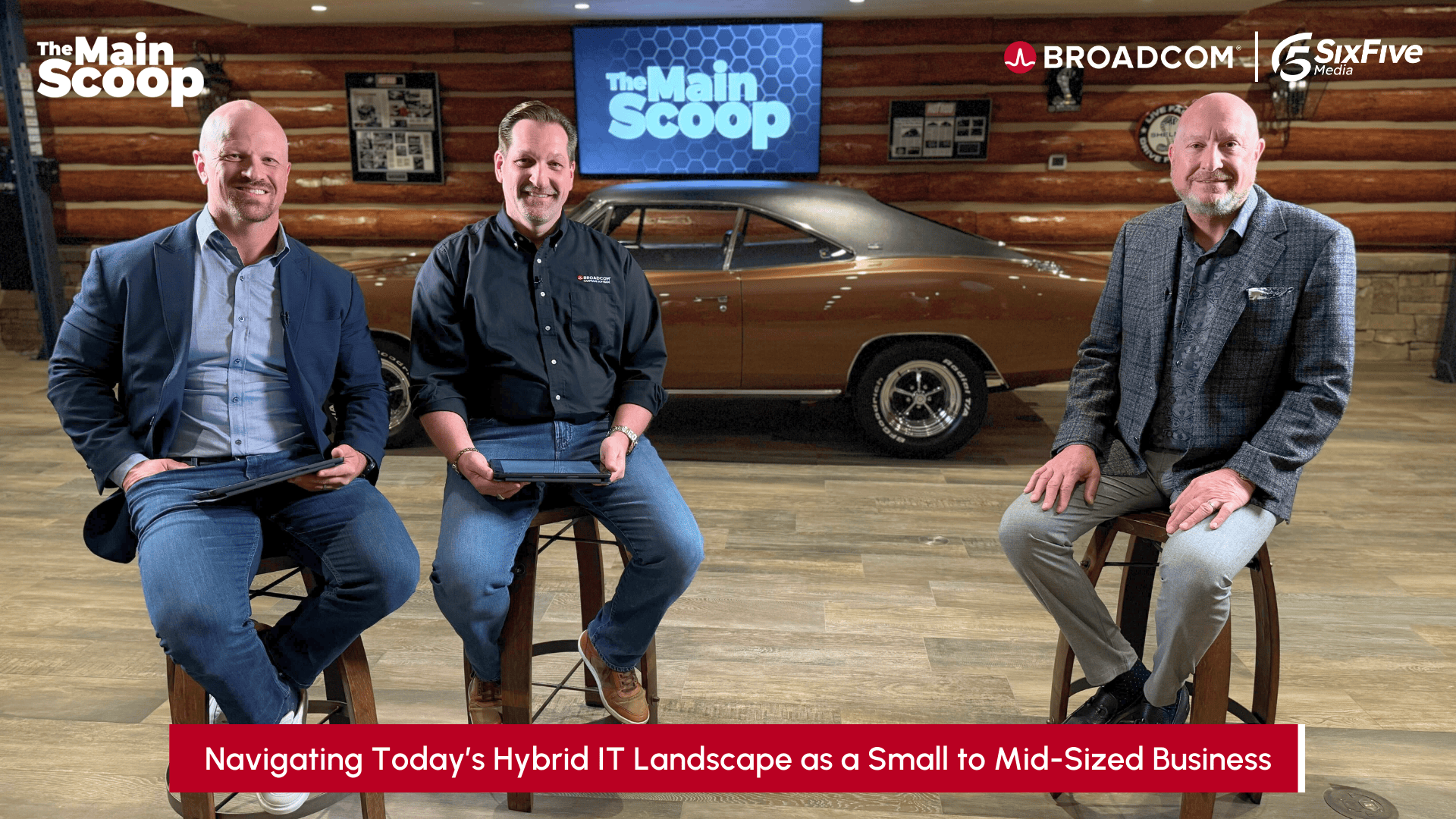
Navigating Today’s Hybrid IT Landscape as a Small to Mid-Sized Business - The Main Scoop
John Kamen, President and CEO of Blue Hill Data Services, joins Daniel Newman and Greg Lotko to discuss how small and mid-sized businesses can run the mainframe efficiently while managing hybrid IT environments and modernization challenges.

The Six Five Pod | EP 291: Davos to Abu Dhabi - Inference, Codex & the So-Called SaaSpocalypse
The Six Five Pod is back with Episode 291. Daniel Newman and Patrick Moorhead are fresh off trips to Davos and Abu Dhabi, where they’ve explored the full AI stack up close (models, infrastructure, healthcare/genomics). This episode dives into what really matters right now in the markets and tech. From Microsoft’s Maia 200 inference push, to NVIDIA’s $2B CoreWeave bet, OpenAI’s Codex closing the coding gap, the “SaaSpocalypse” panic, Cisco’s AI Summit, and a no-BS debate on whether AI agents are actually enterprise-ready.
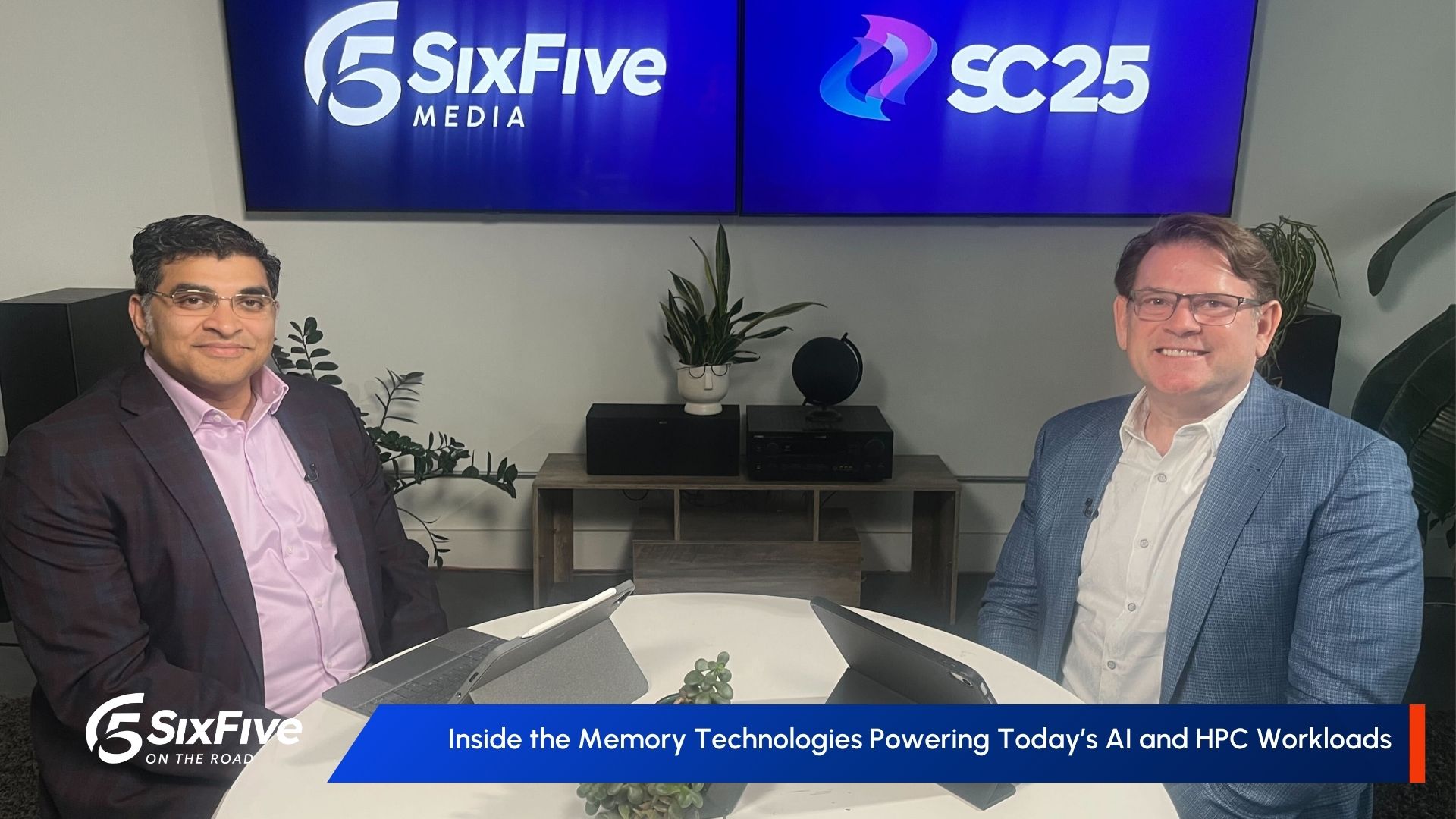
Inside the Memory Tech Powering Today’s AI and HPC Workloads – Six Five On The Road
Girish Cherussery, VP/GM AI Solutions at Micron, joins David Nicholson to explore the latest memory technologies powering AI and HPC, breaking down current bottlenecks, emerging architectures, and what data center leaders need to know now.
Other Categories
CYBERSECURITY
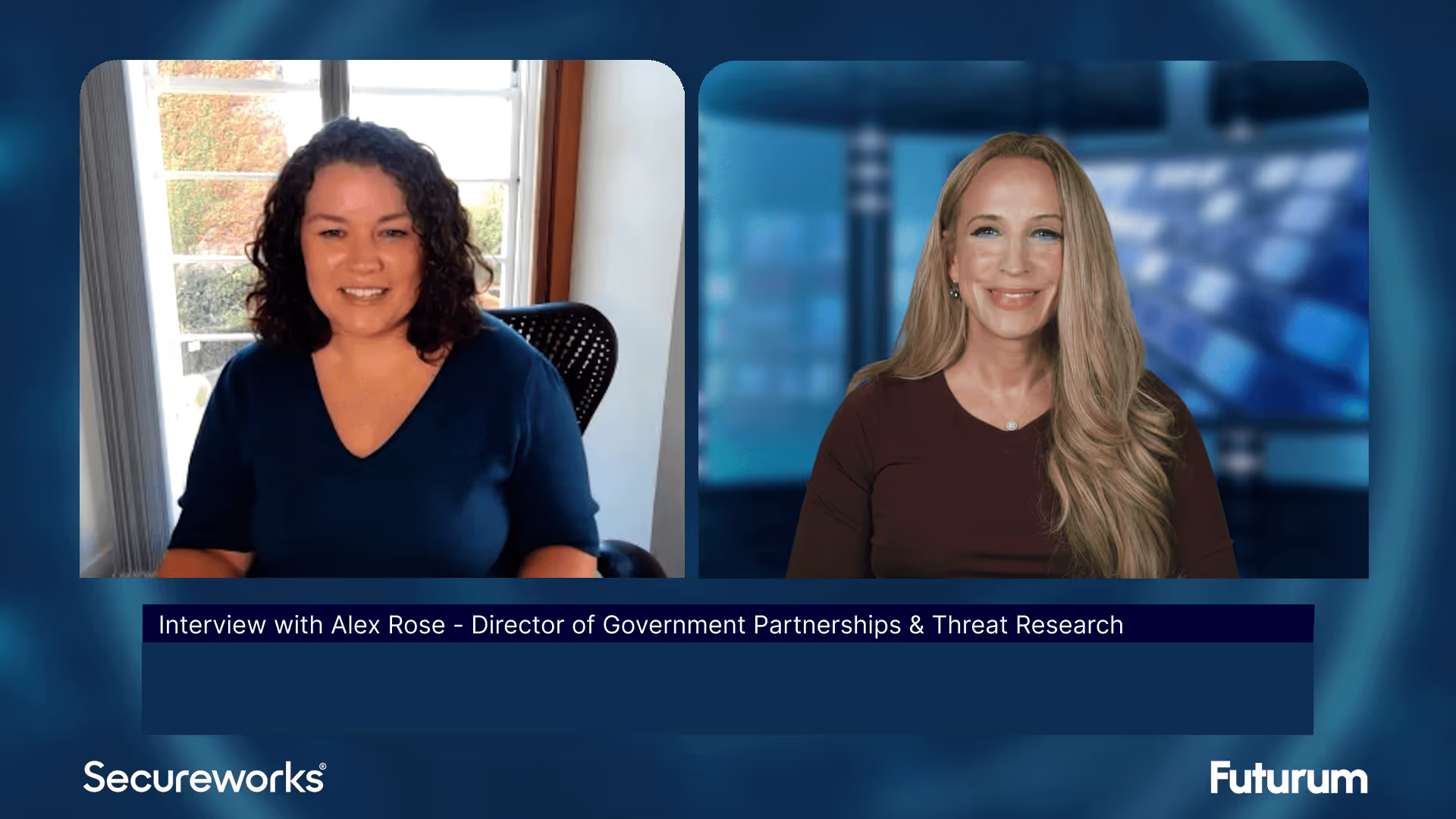
Threat Intelligence: Insights on Cybersecurity from Secureworks
Alex Rose from Secureworks joins Shira Rubinoff on the Cybersphere to share his insights on the critical role of threat intelligence in modern cybersecurity efforts, underscoring the importance of proactive, intelligence-driven defense mechanisms.
QUANTUM
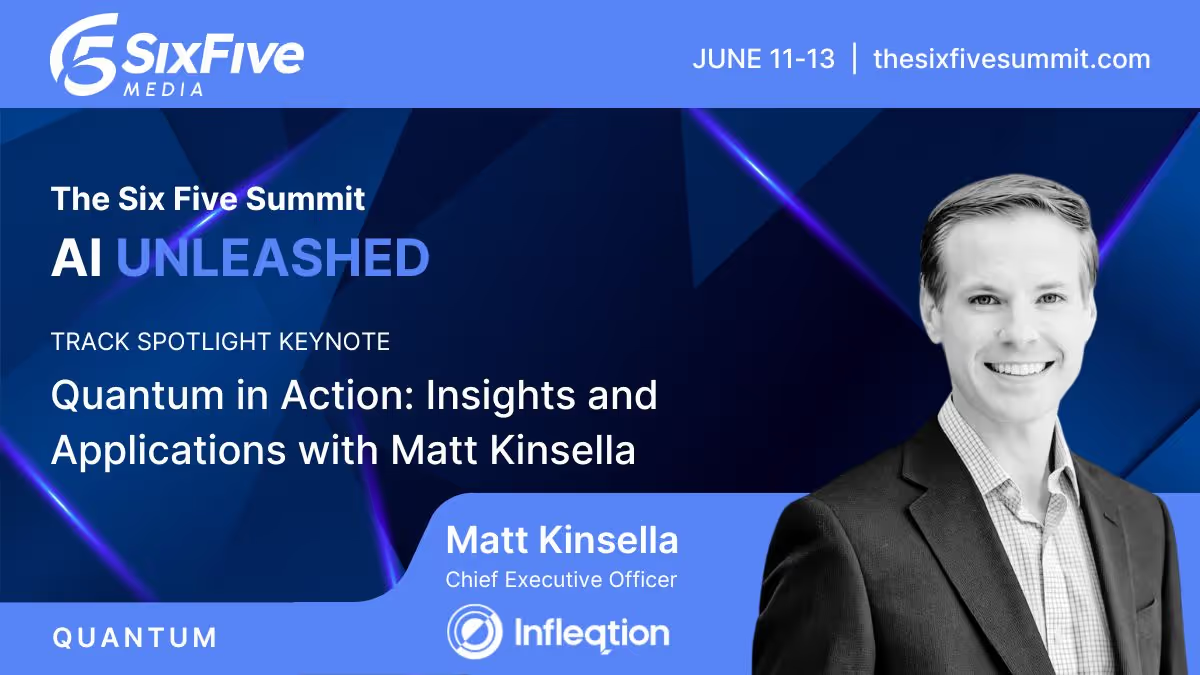
Quantum in Action: Insights and Applications with Matt Kinsella
Quantum is no longer a technology of the future; the quantum opportunity is here now. During this keynote conversation, Infleqtion CEO, Matt Kinsella will explore the latest quantum developments and how organizations can best leverage quantum to their advantage.
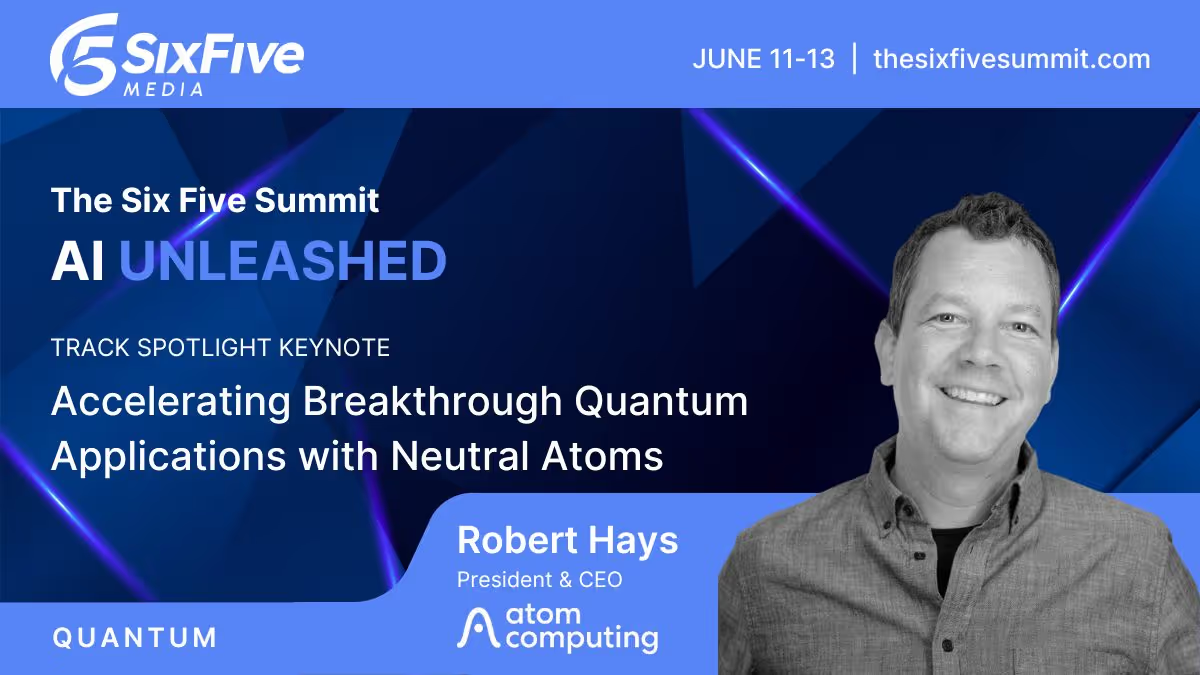
Accelerating Breakthrough Quantum Applications with Neutral Atoms
Our planet needs major breakthroughs for a more sustainable future and quantum computing promises to provide a path to new solutions in a variety of industry segments. This talk will explore what it takes for quantum computers to be able to solve these significant computational challenges, and will show that the timeline to addressing valuable applications may be sooner than previously thought.




